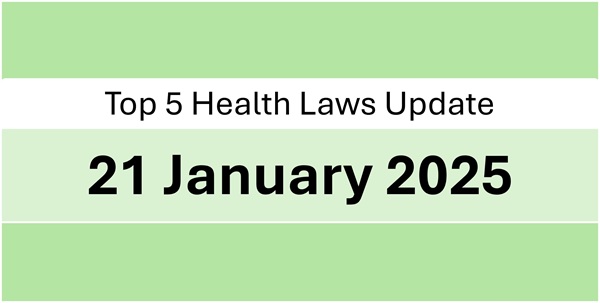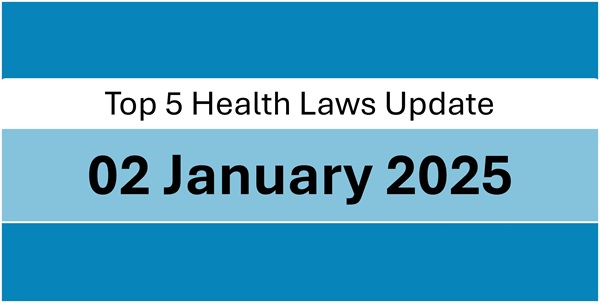Dear Readers, we are happy to share the most interesting legal and policy updates concerning health industry that we read today. we hope you enjoy reading it.
1. India’s Central Pollution Control Board (CPCB) has extended the timelines for the filing of Extended Producer Responsibility (EPR) annul returns by producers of Battery waste and E-waste for the Financial Year (FY) 2023-2024 till 31st March 2025 and 31st January 2025 respectively. For E-waste the extension of timelines also applies to the filing of quarterly returns for the abovementioned FY.
Source: bit.ly/3WthHei
Source: bit.ly/4gcsPmW
2. India’s National Pharmaceutical Pricing Authority (NPPA) has issued an office memorandum (OM) requesting manufacturers and marketing companies of the scheduled formulations nicotine used for nicotine replacement therapy (NRT) to furnish the Price to Retailer (PTR) and Moving Annual Turnover (MAT) data, in value terms for October 2023, within 7 days from the issue of the OM. A format for submitting these details is also provided in the OM. This information is being sought to fix the ceiling prices of these formulations.
Source: bit.ly/4gnoEFb
3. India’s Central Drugs Standard Control Organization (CDSCO) has released a guidance document to support the development of rapid diagnostics for pathogen identification and Antimicrobial Susceptibility Testing (AST). The document offers guidance to innovators and developers on evaluating their tests and demonstrating their effectiveness.
Source: bit.ly/4heX8ue
4. The Kerala High Court (KHC) recently ruled that magic mushrooms are not classified as narcotic substances under the Narcotic Drugs and Psychotropic Substances (NDPS) Act, 1985. After reviewing the legal status of psychedelic fungi, the honourable court concluded that since magic mushrooms are not specifically scheduled under Act, they are not subject to its restrictions.
Source: bit.ly/3CiZv0k
5. India’s Central Pollution Control Board (CPCB) has released draft guidelines for the Pharmaceutical Industry in India, which are currently classified as highly polluting. The guidelines outline criteria for the establishment of pharmaceutical units, including mandatory minimum distances from sensitive areas. Stakeholders and the public are invited to submit their comments and suggestions on the draft guidelines by February 5, 2025.
Source: bit.ly/4h1GC0Y


